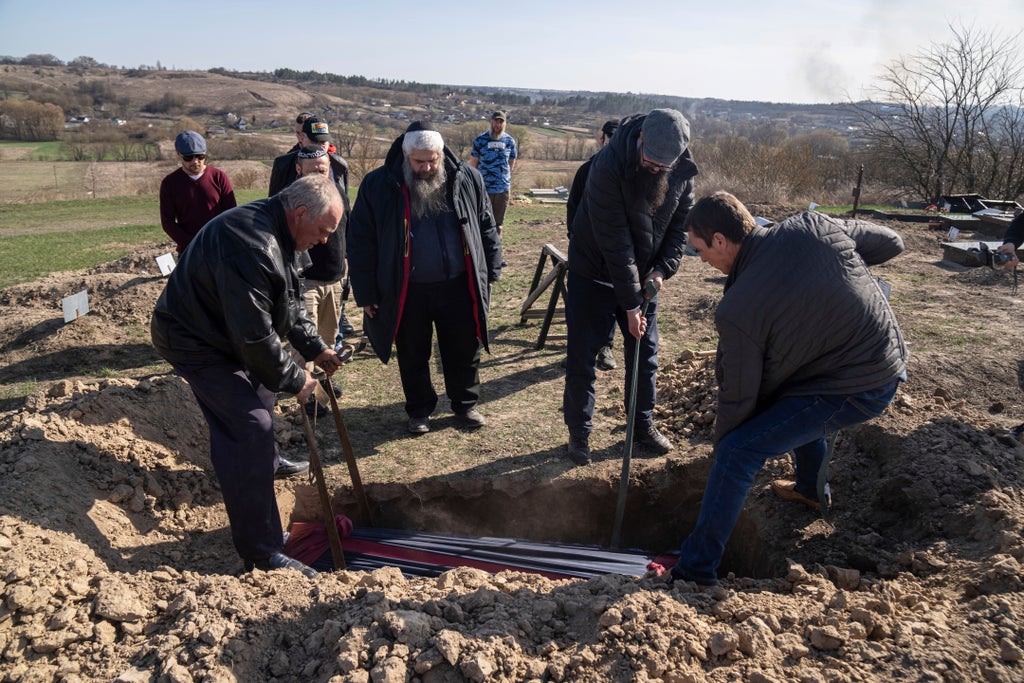
The final hours before Passover found the chief rabbi for Kyiv and Ukraine in a cemetery. Before he could mark the Jewish people’s escape from slavery in Egypt thousands of years ago, he was burying a man who didn’t escape a Russian bullet.
Rabbi Moshe Azman doesn’t know how many Jewish people have been killed in Russia’s invasion. But on Friday, on a rural hillside, he buried one more.
“People of all nationalities, they are in this tragedy,” he said.
The dead man was from Bucha, the community outside Kyiv whose name is now shadowed by horror. The man last posted on his Facebook page in the earliest days of March. His body was only recently found after the Russians withdrew.
No family attended his burial, and the rabbi didn’t know where they are.
“He was a quiet man,” the rabbi said. “A very good guy.” He had been shot and his body showed signs of possible torture.
This Passover, “I pray to God he will make miracles, the way he made miracles for the Jewish people in Egypt,” the rabbi said. The Ukrainian people would like to be free of the Soviet Union, where he was born. “I don’t want to go back,” he said.
When asked what he thought about the Russian government’s claims of “de-Nazifying” Ukraine, the rabbi paused, then turned and indicated the grave.
“This is the answer,” he said. “They killed him. And not only him.” The Russians are killing Russians, Ukrainians, Jewish people, including children, even at hospitals, without asking who they are, he said. He believes these are war crimes.
The rabbi's message to Jewish people in Ukraine who can’t celebrate Passover because they’re trapped or have no food is simple, direct and meaningful: “We pray for you.” He worries about the people in the besieged city of Mariupol, the bombarded city of Kharkiv.
The rabbi said he and colleagues had been working to get the needed Jewish food to hundreds of thousands of people throughout Ukraine. “Be strong,” he said. “Believe in God.” He wished for a “new, good world, without war.”
Passover also was being celebrated in the Ukrainian cities of Odesa, Dnipro and Kharkiv, the rabbi said, though he wasn’t sure about Chernihiv.
At the synagogue in Kyiv shortly before the dinner, a young boy said “Ooh!” as wine bottles were popped open. It was not clear how many people would attend because of the curfew.
One attendee, Natan Skybalskyi, said he usually marked Passover elsewhere but saw fellow wartime volunteers like him as a new family. He had been pitching in as a driver to help with evacuations, he said.
Some people are still waiting for that deliverance.
“I hope this is the last Passover we have in war,” Skybalskyi said.







